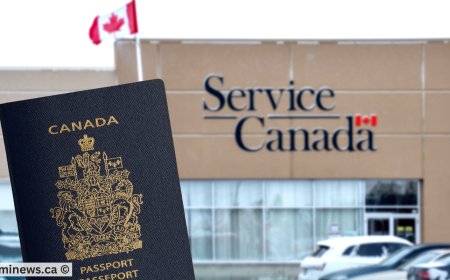Payroll administrators Migration to Canada: A Detailed Guide on Salaries, Professional Responsibilities, and Preferred Locations
Welcome to the pathway to Canada immigration for skilled professionals and trade workers. This guide is specifically tailored for Payroll administrators looking to work and settle in Canada, offering a deep dive into the essential aspects of immigration and employment in this field.
Introduction
In this article, we will be exploring the career and immigration prospects for Payroll administrators in Canada. Payroll administrators, classified under the National Occupation Classification code (NOC 1432), play a vital role in ensuring employees are paid accurately and on time. We will delve into the profile description, main job duties, education and licence requirements, skills needed, median salaries, retirement outlook, as well as possible visa options for those looking to pursue a career in payroll administration in Canada. Whether you are a new graduate, considering a career change, or looking to immigrate to Canada, this article will provide valuable insight into the opportunities available in this field.
What is the Profile Description of a Payroll administrators as per the Canadian National Occupation Classification (NOC) Standards?
Payroll administrators are responsible for managing payroll information, including collecting, verifying, and processing data to determine employee pay and benefits. They maintain accurate records and ensure that payroll information is provided accurately and timely within a department or company. Payroll administrators work for payroll administration companies and can be found in various public and private sector establishments.
What are the Main Job Duties of a Payroll administrators in Canada?
- Maintain accurate records of employee attendance, leave, and overtime to calculate pay and benefit entitlements using manual or computerized systems.
- Prepare and verify statements of earnings for employees, detailing gross and net salaries as well as deductions such as taxes, union dues, garnishments, and insurance and pension plans.
- Process employee payments and benefits, including cheque issuance or electronic transfers.
- Handle administration of benefits like pension plans, leaves, share savings, employment and medical insurance by completing, verifying, and processing forms and documentation.
- Provide employees with information on payroll matters, benefit plans, and collective agreement provisions, while also compiling statistical reports, statements, and summaries related to pay and benefits accounts.
What are the Education, Certifications, and Licensing Requirements to Work as Payroll administrators in Canada?
Usually, individuals interested in pursuing a career as a Payroll Administrator should have completed secondary school. Additionally, they may be required to have completed college courses or other relevant education in accounting, bookkeeping, or payroll administration. Alternatively, having experience as a financial clerk can also be valuable in this role. In some cases, obtaining certification from a recognized payroll association may also be a requirement for this position.
What Essential Skills are Required for Payroll administrators to succeed in Canada?
Success in the profession of Payroll administrators requires a deep understanding and proficiency in various essential skills. Payroll administrators are responsible for preparing and verifying statements of earnings for employees, calculating gross and net salaries as well as deductions such as taxes, union dues, garnishments, insurance, and pension plans. They must be able to prepare and balance period-end reports, reconcile payrolls with bank statements, and prepare monthly statements accurately. Additionally, they need to complete and process forms for benefits administration like pension plans, leaves, and insurance. Communication skills are crucial as they need to inform employees about payroll matters and benefit plans. Payroll administrators are also required to maintain records of employee attendance, leave, and overtime in order to calculate pay and benefit entitlements, utilizing manual or computerized systems. Knowledge of occupational health and safety regulations is important in this role. Moreover, preparing T4 statements and other statements, maintaining payroll records, compiling statistics and reports are essential tasks for success in this profession.
What is the Median Age and Retirement Age for Payroll administrators in Canada?
The skilled professionals working as Payroll administrators have a median age of 44 years old and typically retire around the age of 63. This indicates that individuals in this field tend to work well into their 60s before leaving the workforce. The fact that the median age is younger than the average retirement age suggests that there is a diversity of ages within the profession, with some individuals choosing to retire earlier while others continue working for a longer period of time. This data highlights the importance of financial planning and retirement readiness for Payroll administrators as they navigate their careers and prepare for the future.
How many job openings exist for Other Payroll administrators in Canada, and what's their provincial distribution?
According to recent data, there are a total of 69 job openings for payroll administrators in Canada. The province with the highest number of job openings is Quebec with 25 positions available, followed by British Columbia with 18 openings and Saskatchewan with 11. Ontario has 9 job openings, Nova Scotia has 3, New Brunswick has 2, and Manitoba has 1. Quebec has the maximum number of job openings for payroll administrators, while Manitoba has the minimum. This data suggests that there are opportunities for payroll administrators across various provinces in Canada, with Quebec offering the most opportunities in this field.
What is the hourly wage or salary of Payroll administrators in different Provinces of Canada?
Payroll administrators in Canada earn varying wages depending on the province in which they work. In British Columbia, payroll administrators have a wage high of $35.00, a median wage of $25.00, and a low wage of $17.00. Moving to Alberta, payroll administrators see a higher wage range with a high of $39.42, a median of $27.42, and a low of $19.23. In Saskatchewan, wages are slightly lower with a high of $32.52, a median of $25.24, and a low of $18.00. Meanwhile, in Ontario, payroll administrators earn a high of $35.58, a median of $25.00, and a low of $16.75. Overall, wages for payroll administrators in Canada range from province to province, with Alberta offering the highest wages and Prince Edward Island offering the lowest.
What are the various visa options available for Payroll administrators migrating to Canada?
Payroll administrators have several visa options available to them to migrate to Canada. One of the most popular options is the Express Entry Visa Category, which allows skilled workers to apply for permanent residency based on factors such as age, education, work experience, and language proficiency. Payroll administrators can also explore Provincial Nominee Programs, which are designed to address specific labor market needs in different provinces and territories. Additionally, Employer Sponsored Work Visas are a great option for payroll administrators who have a job offer from a Canadian employer. There may be other visa options currently open for payroll administrators as well. To learn more about these visa options and discuss your migration plans in detail, book an appointment with our professionals today.
Have Questions or Need Assistance?
If you have any queries or require assistance with your immigration plans, we're here to help. Our experienced immigration consultants are ready to provide personalized guidance tailored to your specific needs.
Don't hesitate to reach out and schedule an appointment today. Whether you're seeking clarification on immigration processes, exploring visa options, or need support with documentation, we're dedicated to assisting you every step of the way.
Book an appointment with our team to discuss your immigration goals and receive expert guidance for your journey to Canada.
What's Your Reaction?
 Like
0
Like
0
 Dislike
0
Dislike
0
 Love
0
Love
0
 Funny
0
Funny
0
 Angry
0
Angry
0
 Sad
0
Sad
0
 Wow
0
Wow
0









































































